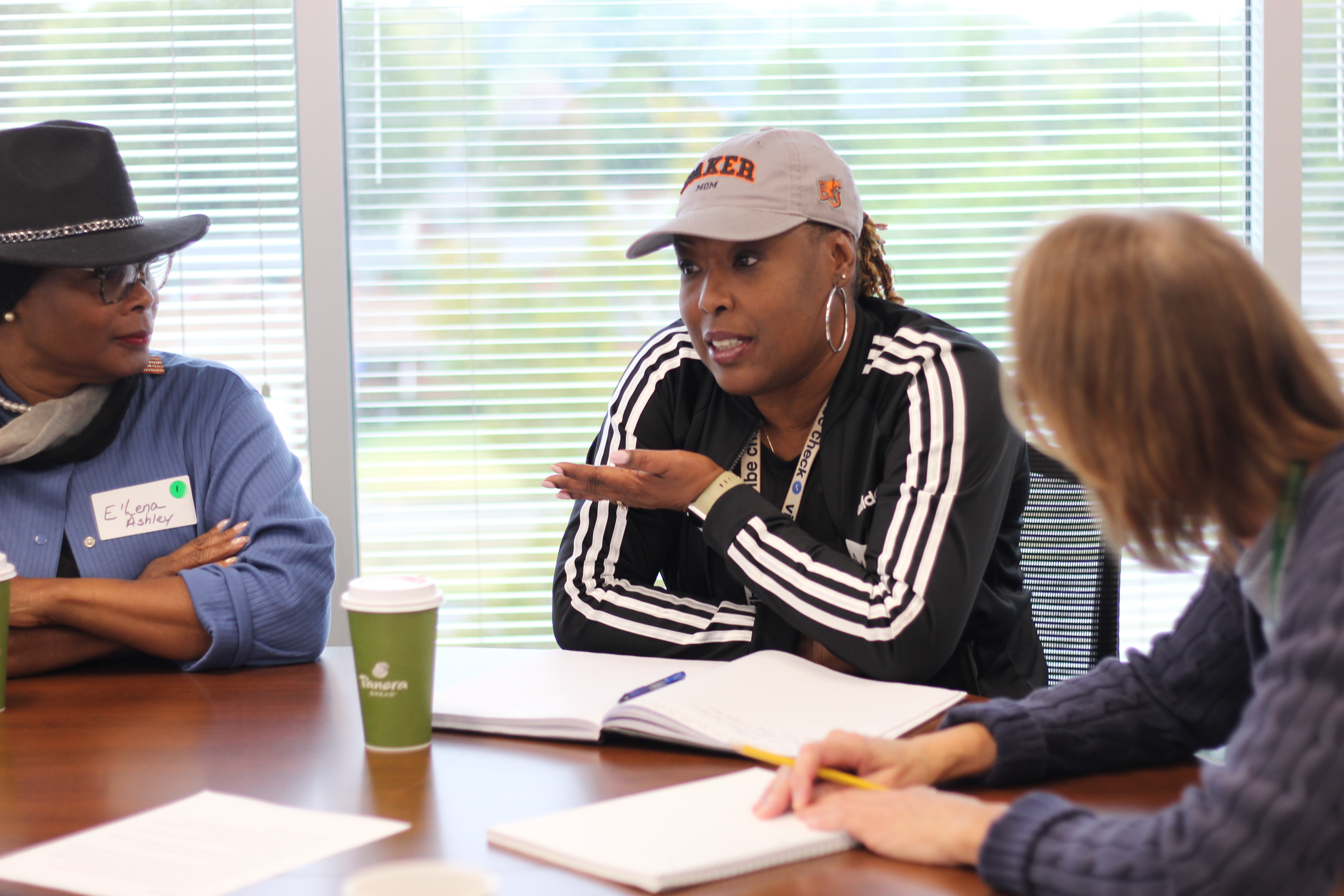TULSA, OK — The Training and Evaluation team of ImpactTulsa, led by Lauren King and Vanessa Dinh-Nguyen, builds capacity for partners to engage in systems change work that disrupts disparities in education. In an effort to design programming that meets partners’ needs, the team collected survey results from partners to ask their preferences for program offerings. The results indicated that networking opportunities were a top priority.

This survey introduced the question of how our team could meet the community’s voiced needs. Based on the survey results, the Training and Evaluation team decided to pilot a “Perspectives” series that convened community members to talk through local education topics that draws a wide range of perspectives.
We held three separate sessions that focused on exploring:
- The role of Social Emotional Learning (SEL) in the classroom
- Preparing the future generations for critical occupations
- Exploring inclusive parent engagement in early childhood education
The goal of this series was to create space for networking that allowed for exchanging of varying perspectives. Engaging in authentic listening and exploration of varying perspectives supports understanding differences in a way that overrides divisiveness. That ultimately enables people to engage in the tougher conversations that come with understanding and disrupting disparities in education.

Our team was intentional in asking partner organizations to co-develop each of the sessions to ensure we positioned experts to guide conversations specific to each topic area. Another perk of co-developing with our partners was the opportunity to learn from their approaches for developing session content and implementing inclusive practices.
- The Opportunity Project’s planning team created content that illustrated vantage points from people who think SEL (social emotional learning) should be in classrooms and people who do not. This created space for multiple opinions, experiences, and preferences to enter into the room as participants reflected on similarities and differences between multiple vantage points.
- The Tulsa Higher Education Consortium invested time to be very intentional in thinking through an appropriate audience by balancing inclusivity with relevance. They used an equity lens to think about how to gather multiple perspectives into the room, while also knowing that a blanket invitation would impede the ability to make the conversations relevant to everyone. Additionally, they shared data in a way that equalized the conversation so that all participants had an opportunity to understand the state of the field before being asked to share their reflections.
- The CAP Tulsa planning team called out the need to talk through the detailed meaning of concepts because “we could all be talking about a ball game, but I’m talking about baseball and you are talking about basketball and we never realized we are actually talking about similar but different things.” This translates to how often jargon or lack of clarity can be a disrupter to understanding one another. Calling this out during the session helped encourage exploration of what parent engagement looks like across multiple settings and moved people to be more explicit in sharing their ideas.

We are grateful for the community response to the Perspectives program series as it offered an opportunity to dig deeper into local education topics that can be divisive. The series achieve the goal for participants to build connections with one another, and to practice active listening from a board range of perspectives.
One of the biggest takeaways from all three sessions came from participants’ conversations that emphasized the need to be willing to recognize differences in culture, experience, values and perspectives. Acknowledging and appreciating one another’s differences instead of pretending they do not exist is a crucial first step to engaging in conversations that allow all perspectives to be better understood. For the sake of our collective work serving students and families, the hope is that these conversations will continue beyond the sessions as they offer an opportunity to expand our mindsets in understanding community needs. If you would like to co-host a Perspectives session in Spring 2023, please email Lauren King at laurenk@impacttulsa.com to discuss.
Participant and Partner Takeaways:

“We are always looking for ways to connect partners in the Tulsa community to each other in a location with activities and resources that start great conversations. It was easy to say yes to co-facilitating a Perspectives Session with ImpactTulsa to provide one of these spaces. The energy in the room was palpable and observing partners actively listening and engaging with each other was invaluable. Connections were made and futures were altered because of our session. The piece that stood out to me was the need not only for time to network but for that time to be structured. In the future we look forward to providing those structured networking opportunities.”
— Kara Hader, Associate Director of Professional Learning and Partnerships at The Opportunity Project

“Facilitating conversations surrounding higher education really requires the facilitator to help unpack what participants are thinking. As the facilitator, it is important to recognize and be able to describe the relationship between higher education and various other sectors–for instance, higher education and technology. Sometimes participants of a conversation will work in a sector that is not visibly in lockstep with higher education, but feedback loops between the sectors are robust. While facilitating, I love seeing participants identify the sometimes hidden threads between higher education and other sectors. Then the ultimate goal of improving the relationships between the two sectors can begin.”
— Brian Cain, Postsecondary Fellow (Tulsa Service Year) at Tulsa Higher Education Consortium

“My awareness elevated about how fathers are not expected to be engaged in the early stages of a child’s development, however they want to be. Those who attended were keenly aware that we, (schools, agencies, organizations) have a responsibility to be intentional about building trust, respect and accessibility in order to engage families by listening and being compassionate when it comes to the individual situations. Less judgement.”
— Renee Williams, Senior Training Specialist of Family Advancement at CAP Tulsa

